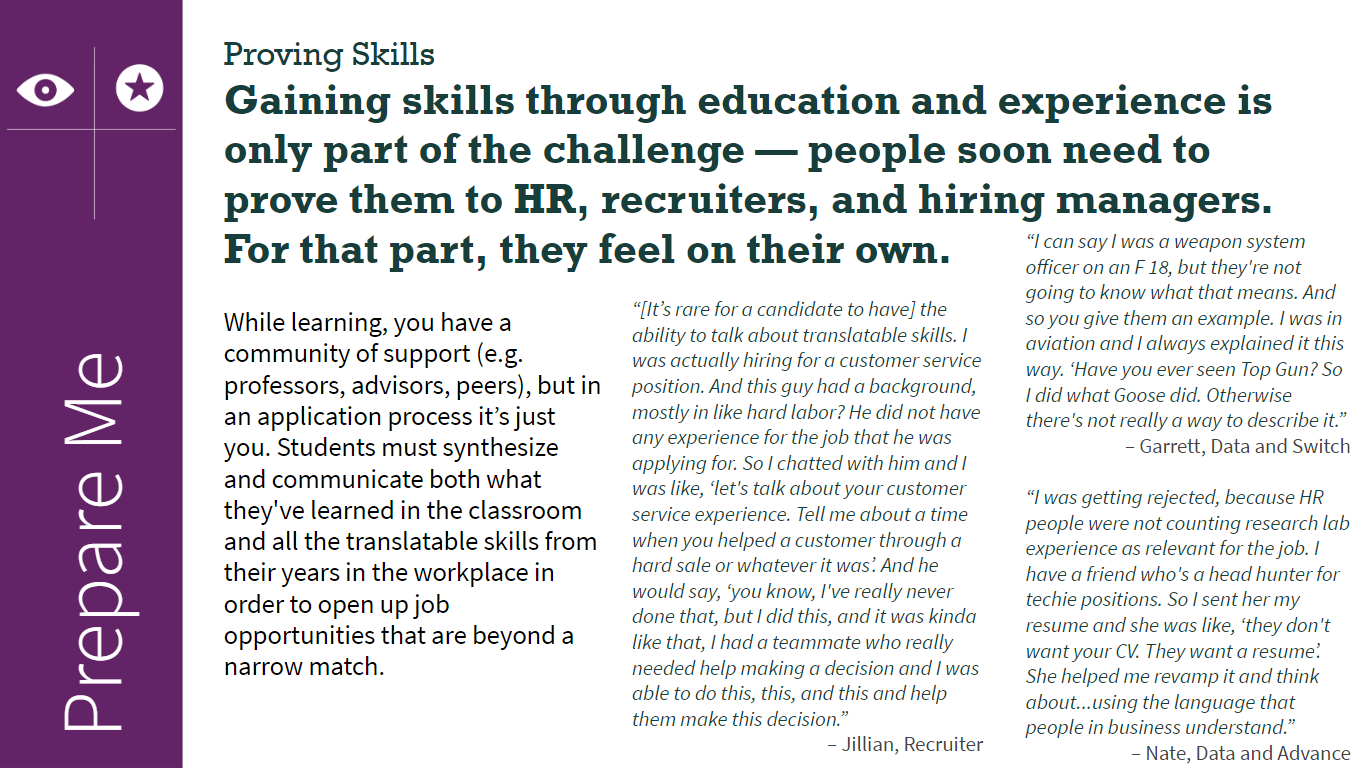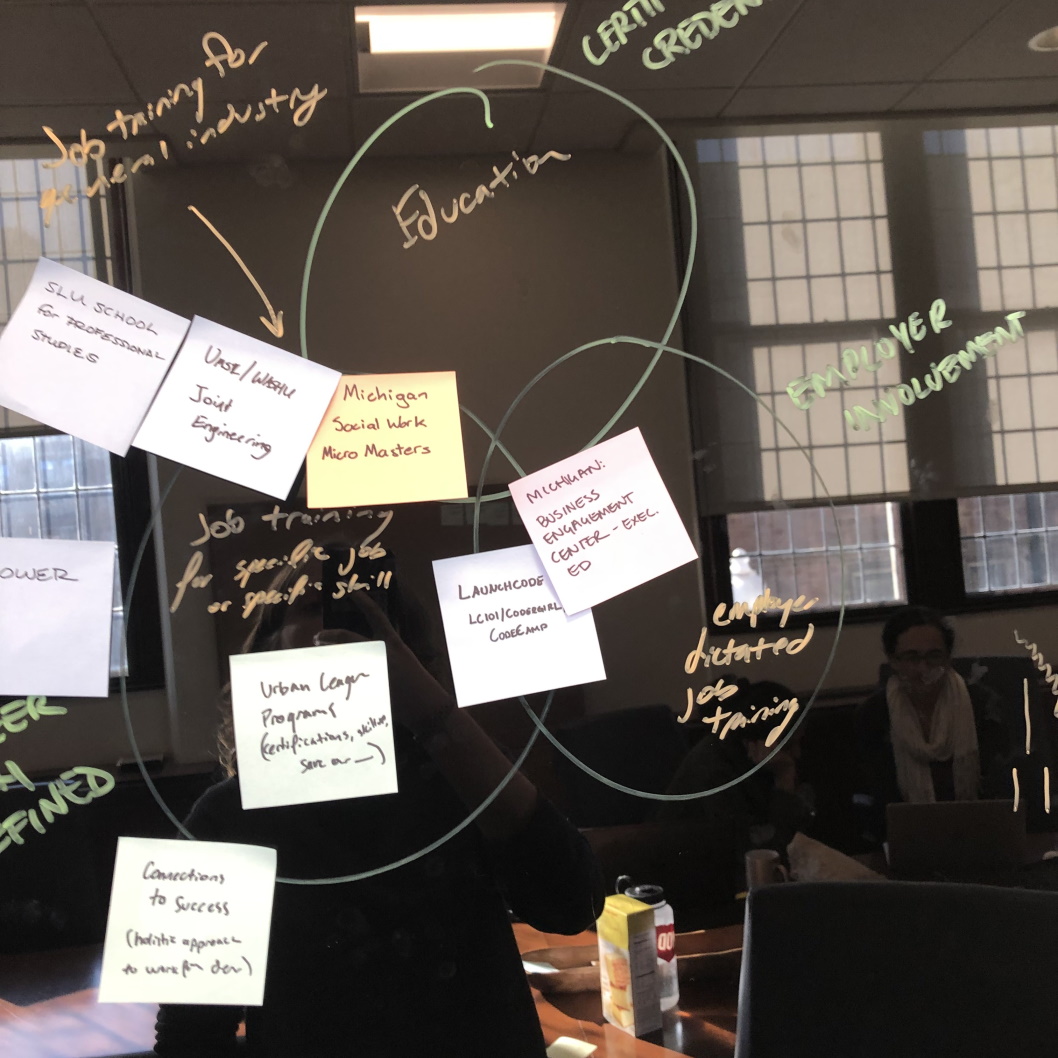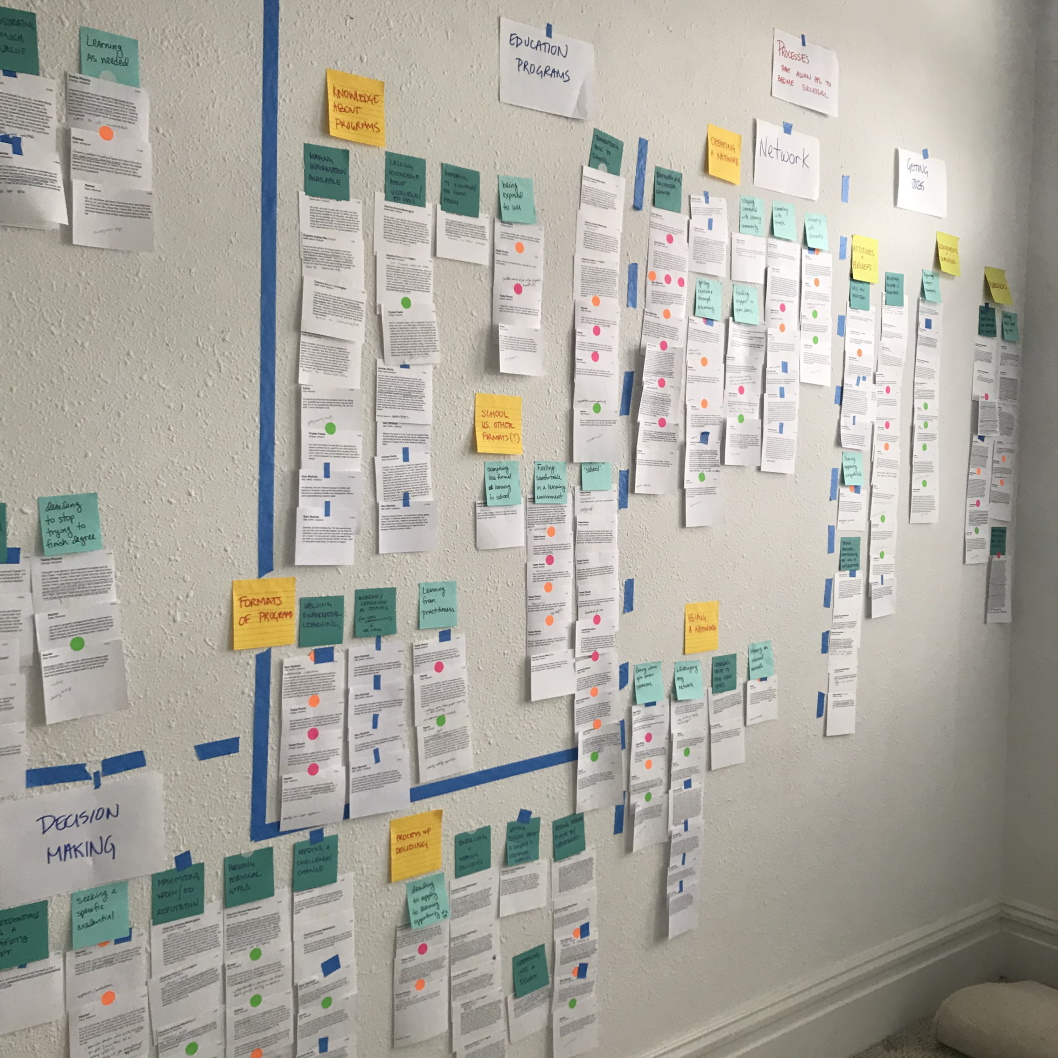Facilitator
I’d observed a few interviews before Liz and Annemarie asked if I wanted to lead one. I was nervous to be in charge of a 1-1 interview for 90 minutes but if they thought I could do it, then I had to at least try. It was just me and another student asking the questions, setting up the video, and filling out the paperwork. This experience really boosted my confidence, encouraging me to jump at other opportunities to engage more directly with the process. Getting to facilitate feedback sessions with students and staff later in the project continued to make me feel more comfortable with my skills. I’d facilitated discussions in student groups before but this was my first time working with professionals and those outside my peer group. If I was being trusted in this, I must have some idea what I’m doing! Having this experience under my belt has encouraged me to advocate for myself and my skills in ways I wouldn’t have been comfortable with before.






